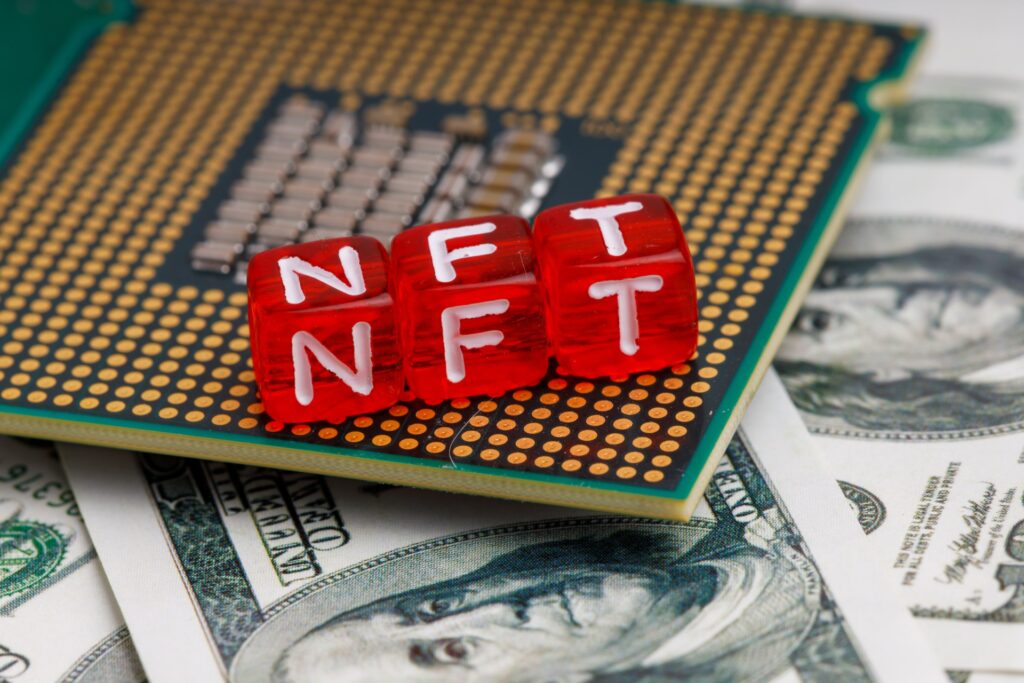NFTs and Metaverse in Finance and Fintech

Blockchain technology enthusiasm is rising with its intriguing potential applications and decentralization. NFTs and Metaverse are among the media’s most exciting and discussed topics. Since they offer enormous potential for businesses to thrive, which are sure to become the defining aspects of the future. The term “NFT” may evoke images of memes featuring quirky characters or a digital art piece selling for a considerable amount of money. However, this term may mean something entirely different soon. The fascinating technology has the potential to shape various industries. These include real estate, advertising, healthcare, fashion, and sports. Finance is one of the traditional sectors that will gain the most from the blockchain token economy. Almost anything related to money management can be linked to decentralized Finance DeFi and verified through the blockchain-based ecosystem.
An overview of Metaverse and NFTs
Crypto assets have been around for a while. There has been a recent surge in the popularity and use cases. It is primarily due to the rise of the Metaverse, a 3D virtual world on the Blockchain. The decentralized, open-source universe is a next-generation concept paired with Artificial Intelligence AI, Virtual Reality VR, and a new decentralized financial system to create a more sustainable and immersive digital world where people can interact, work, and exchange digital goods. The Metaverse is home to countless NFTs that can be bought, sold, customized, and traded. For starters, NFTs or Non Fungible Tokens are often used to represent real-world assets, like land or property, and digital assets, like art, music, or even in-game purchases.
Usage and Impact of NFTs in Finance and Trade
NFTs are far more than pixelated images or JPEGs. Instead, they are used for various purposes, including virtual land ownership, music, in-game collectibles, and digital collectibles that are unique and not interchangeable. NFTs have the potential to revolutionize the way we trade and invest in digital assets, as they are more efficient and secure than traditional methods.
It is often the case that trades and acquisitions of assets require verification of ownership and transfer. Offline, this is just done by hand or through manual interactions. But with the advent of NFTs and the ability for smart contracts to handle everything from transfer to ownership, these processes are made automated, much faster, and more cost-effective at every step. This leads to cheaper and more efficient settlements.
Among the most significant use cases for NFT is proof of ownership. The issue of identity verification no longer affects businesses. NFT tokenization removes the long-standing barrier to the verification of identities. The token serves as an authentication certificate that excludes all forms of fraud.
Tech Revolution to Streamline Processes
An immersive computing initiative, Metaverse leverages a robust infrastructure based on 5G technology and cloud computing, paired with artificial intelligence to streamline operations, transactions, and overall user experience. It is fascinating for the world of Fintech to see how this virtual reality is expanding and taking hold. The collaborative efforts of upcoming technologies with Fintech services and solutions are tailored to businesses and individuals’ needs and designed to reduce industry inefficiencies.
Metaverse is still too early to realize its full potential, but industry players are investing heavily and partnering with companies such as Facebook, which rebranded as Meta. or Microsoft, which confirmed to step into the new internet vision with different solutions for Industrial, Enterprise and Consumer Metaverses. Apple and Google are inclined in the same direction, ensuring a possible future that is more immersive and engaging compared to the reality we live in now.
NFTs in Decentralized Finance
NFTs have emerged as a popular asset class in recent years, with their unique properties offering distinct advantages in various Fintech applications. Among the most exciting ideas is to utilize tokenized financial products as collateral to earn interest or get loans. NFTs are immutable and cannot be double-spent like BTC or ETH. This makes them much more suitable as collateral in applications where security is paramount. NFTs can also represent more complex financial products such as insurance, bonds, and options. Decentralized blockchain ledger stores the contracts and does away with the need for pesky mediators like banks and centralized financial institutions that skim massive sums of money off every activity and transaction.
NFT Renting: As the popularity of NFTs continues to grow, so does the debate over how to fairly distribute royalties and profit from NFT sales. One option that has been gaining traction is NFT rentals. NFT holders can choose to lease their NFTs for a set period rather than sell them outright. This gives the creators a steady income from their NFTs while allowing others to enjoy and use their NFTs.
NFT Royalties: another way to maximize revenue is through royalties. When an NFT is sold, the creator of the NFT can receive a royalty on each sale. This allows creators to continue earning money from their NFTs even after selling them.
Entrepreneurs who wish to expand into passive income should look into the options available through renting NFTs.
References
https://www.coindesk.com/tech/2021/10/08/nft-rentals-why-vcs-are-backing-a-puzzling-new-project/
https://academy.binance.com/en/articles/top-7-technologies-that-power-the-metaverse